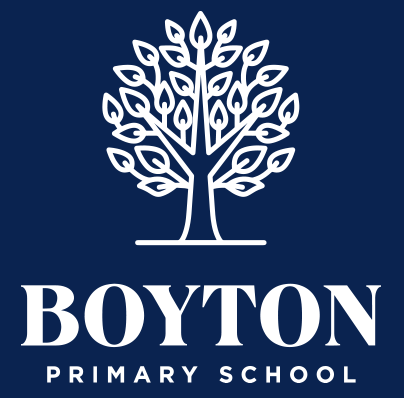Overview
At Boyton Primary, we are ‘Growing Ambitious Minds’ by providing a broad and balanced to inspire and motivate pupils to have high aspirations; provide them with the tools to become assessment-capable learners and be socially responsible within the school and wider community.
English
At Boyton Primary, our intent is for children to develop fluency in, and a love for, the English language, through the spoken and written word.
We recognise that English is a core subject within the National Curriculum and a pre-requisite for educational progress.
We value all languages at Boyton Primary, as language is essential for social, personal and emotional progress.
Mastery over language empowers children to function effectively in a literate society and to communicate not only at a functional level but also on a creative and imaginative plane.
We strive for children to be literate. By the age of 11, we aim for children to be able to:
- read, write and speak with confidence, fluency and good understanding, drawing upon a range of independent strategies to self-monitor and correct;
- have an interest in a wide range of reading materials and read spontaneously for enjoyment and pleasure;
- acquire a wide vocabulary, an understanding of grammar and knowledge of linguistic conventions for reading, writing and spoken language;
- be familiar with, by understanding the structure and language features of, a range of non-narrative and narrative forms;
- be able to model their own writing on these familiar styles and forms according to the context, purpose of, and audience for, their writing;
- draw upon increasing powers of imagination, inventiveness, initiative and critical thinking in all aspects of their literacy experiences, including being reflective writers (writing with a reader’s eye and reading with a writer’s eye);
- at least meet age related expectations in all aspects of English.
- speak clearly and convey ideas confidently using Standard English;
- develop their understanding through speculating, hypothesising and exploring ideas, enabling them to clarify their thinking as well as organise their ideas for writing;
- read fluently and understand extended prose (both fiction and non-fiction);
- write at length, with accurate spelling, punctuation, and correct use of grammar for a range of purposes and audiences.
Please see Phonics and Early Reading, Reading, Spoken Language and Writing sections for further detail about how this is implemented.
